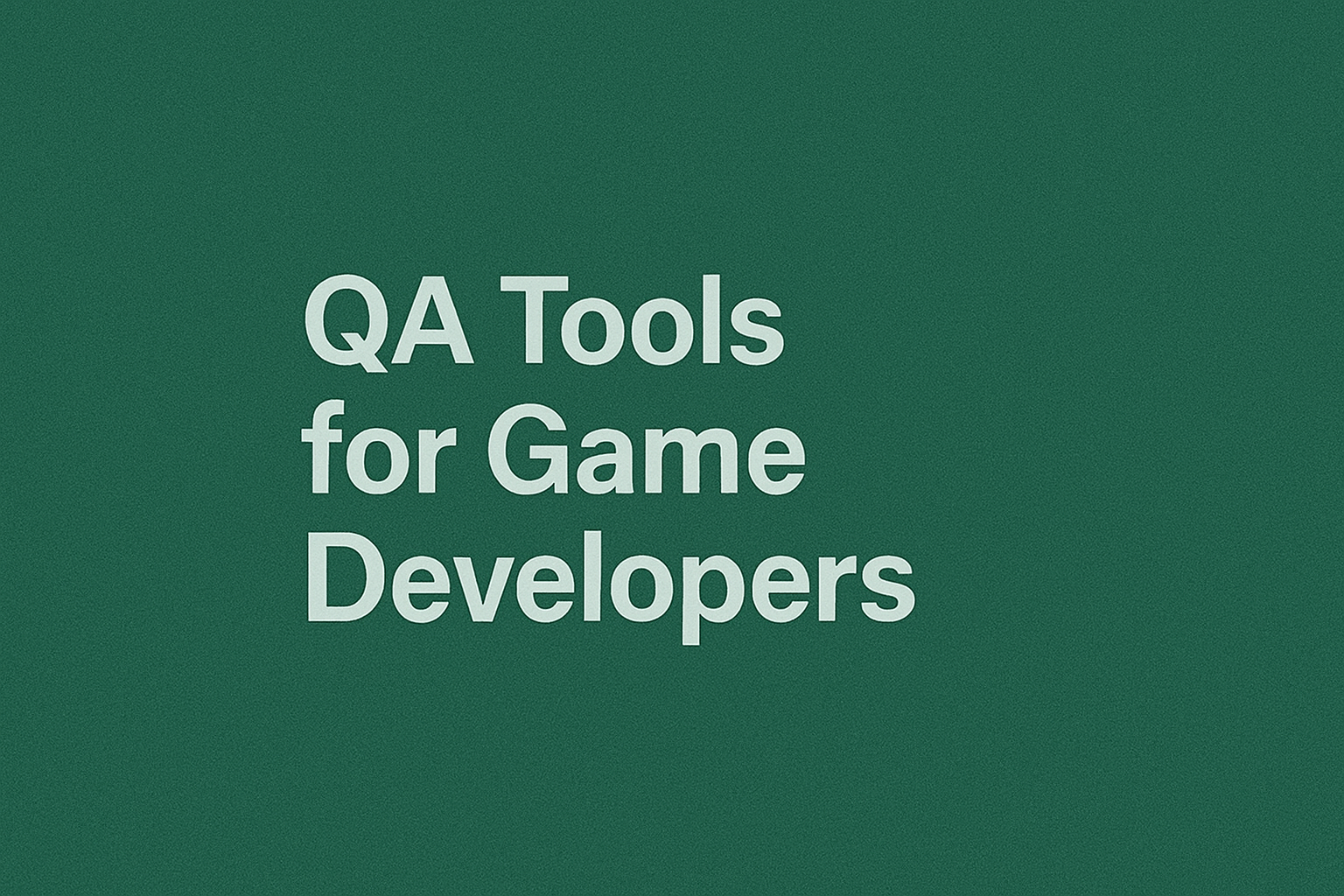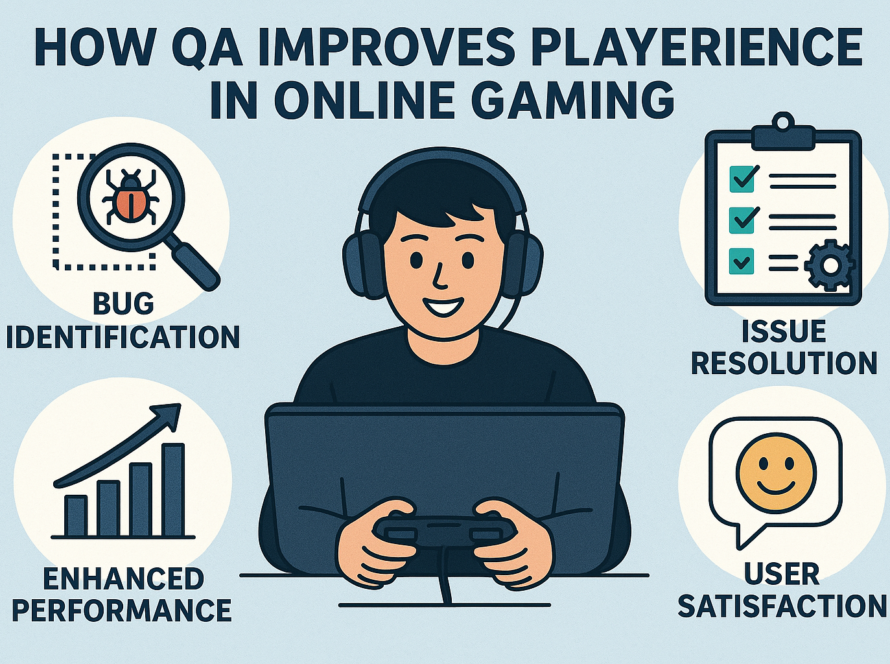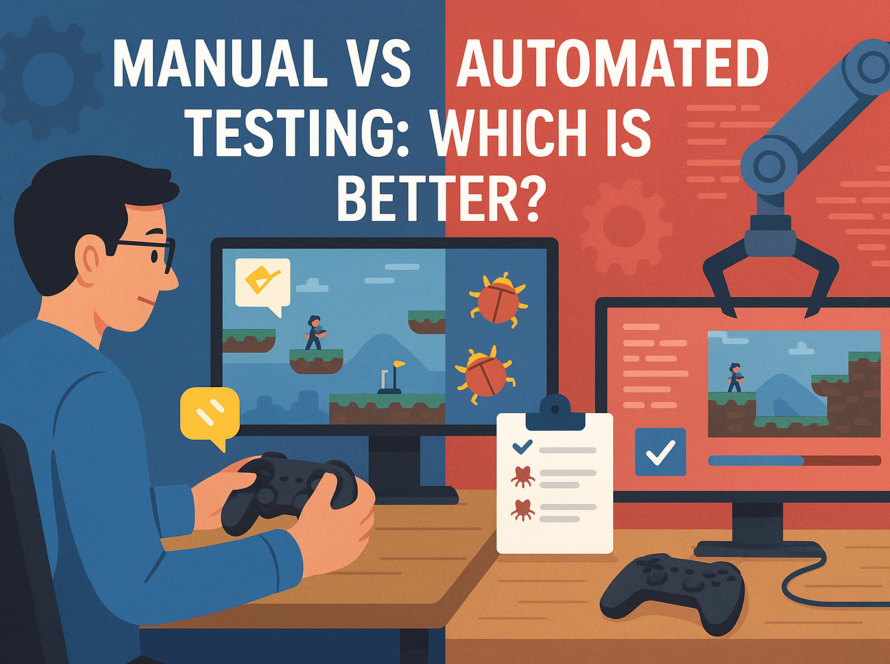As the gaming industry continues to grow rapidly in 2025, quality assurance (QA) is more important than ever. With players expecting high performance, bug-free gameplay, and consistent updates, game developers must rely on powerful QA tools to meet these demands. The right testing tools not only accelerate development but also ensure compliance, performance, and cross-platform reliability. In this guide, we explore the most essential QA tools for game developers in 2025 that can transform the way you build and test your games.
Why QA Tools for Game Developers Matter More Than Ever
In 2025, games are no longer limited to single platforms. Developers now build titles for Android, iOS, PC, consoles, VR, and even cloud gaming environments. As a result, testing has become significantly more complex. Manual testing alone cannot keep up with the pace of updates, patches, and device variations. This is where dedicated QA tools step in. These tools help automate, streamline, and scale the QA process. Therefore, investing in the right QA tools for game developers is crucial to maintaining quality, speed, and compliance with modern standards like ISO and GDPR.
1. Unity Test Framework – Ideal for In-Engine Testing
Unity remains one of the most widely used engines in game development. Its built-in Unity Test Framework offers a solid base for testing game logic, runtime behavior, and components. This tool is especially useful for developers who want to test C# scripts, simulate game conditions, and identify performance issues inside the Unity environment. Furthermore, it supports both edit mode and play mode testing, offering flexibility for different stages of development.
2. Appium – Mobile Automation Made Easy
Appium is a go-to automation tool for mobile game testing. It supports Android and iOS, allowing developers to run cross-platform tests with a single codebase. Appium works with native, hybrid, and mobile web apps, making it versatile for mobile gaming projects. It also integrates with popular frameworks like TestNG and JUnit. Because mobile gaming continues to dominate the market in 2025, Appium remains one of the most relevant QA tools for game developers.
3. TestComplete – Codeless Functional UI Testing
TestComplete is perfect for teams that need to perform automated UI testing without deep coding knowledge. It supports over 500 controls and libraries out of the box, making it easier to test game interfaces, menus, settings, and in-game HUD elements. In addition, TestComplete integrates with Jenkins and Git, helping developers fit QA into CI/CD pipelines. Its powerful record-and-replay features reduce testing time and are suitable for studios of all sizes.
4. GameBench – Real-World Performance Analytics
GameBench is a performance monitoring tool built specifically for games. It helps developers analyze frame rates, CPU and GPU usage, battery drain, and memory allocation under real gameplay conditions. These metrics are crucial in optimizing player experience and reducing crashes. GameBench supports both Android and iOS, and because it focuses on real-time user scenarios, it has become one of the top QA tools for game developers aiming for performance optimization.
5. Selenium – Web-Based Game Testing
For browser-based and web-enabled games, Selenium remains the industry standard. It automates browsers for testing UI interactions, multiplayer matchmaking screens, or web-based leaderboards. While not designed solely for games, its flexibility and strong support community make it invaluable for QA teams managing cross-platform features. In 2025, many mobile and PC games use embedded web components, making Selenium integration increasingly important.
6. JIRA + Zephyr – Test Management and Issue Tracking
No QA setup is complete without proper test case management and bug tracking. JIRA, when integrated with Zephyr, offers powerful test planning and reporting tools. It allows developers to link defects with test cases and track progress across teams. This integration ensures that testing stays organized, traceable, and scalable, especially in large development pipelines. It may not directly test gameplay, but it’s vital to any complete QA tools for game developers toolkit.
7. Kobiton – Real-Device Cloud Testing
Kobiton allows QA teams to test games on real devices in the cloud, removing the hassle of maintaining a physical device lab. With support for hundreds of Android and iOS versions, it’s ideal for ensuring device compatibility. In 2025, as new phones and OS updates roll out faster than ever, Kobiton ensures your game performs consistently across devices. Its intuitive UI and support for manual and automated tests make it a strong addition to any mobile game QA stack.
8. Charles Proxy – Network Debugging and Analysis
Multiplayer and connected games often face networking issues such as latency, packet loss, or improper API responses. Charles Proxy is an excellent tool for capturing and analyzing HTTP/S traffic between the game and server. It helps debug communication, verify API calls, and simulate network errors. For any online game, it’s one of the must-have QA tools for game developers focused on backend validation.
9. Firebase Test Lab – Scalable Cloud-Based Testing
Offered by Google, Firebase Test Lab is widely used for testing Android games. It runs tests on physical and virtual devices hosted in Google’s data centers. The tool is fully integrated with Android Studio, making it easy for teams to set up tests. It also captures crash logs, performance stats, and video recordings of test runs. As mobile development accelerates in 2025, Firebase remains a cost-effective way to scale QA without infrastructure overhead.
How to Choose the Right QA Tools for Game Developers in 2025
Choosing the right tools depends on your project type, team size, and platform strategy. For mobile games, tools like Appium, Kobiton, and GameBench are highly effective. For PC and console development, Unity Test Framework and TestComplete offer deeper engine integration. Furthermore, integrating tools like JIRA and Zephyr ensures smooth workflow management and traceability. Always consider how tools fit into your CI/CD pipeline and whether they support automation, real-device testing, or performance monitoring.
Final Thoughts on QA Tools for Game Developers
With rising player expectations and rapid development cycles, relying on manual QA alone is no longer practical. In 2025, automation, performance testing, and cloud-based tools have become essential parts of every QA process. The right QA tools for game developers can speed up delivery, reduce bugs, and improve gameplay quality across devices and platforms. By selecting and integrating these tools early, developers can stay competitive and launch games that meet the high standards of today’s gaming audience.




